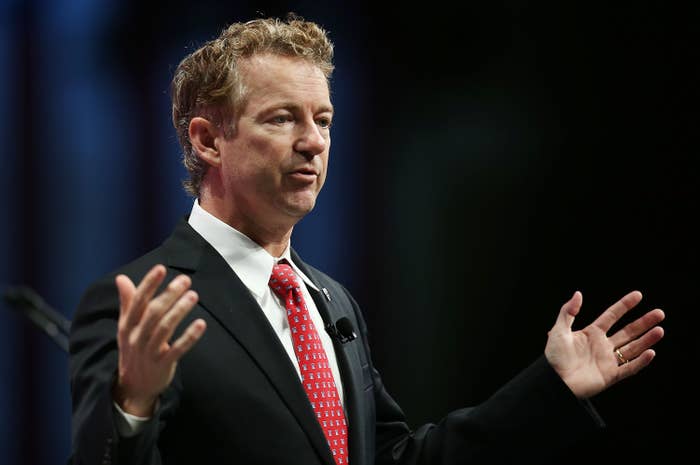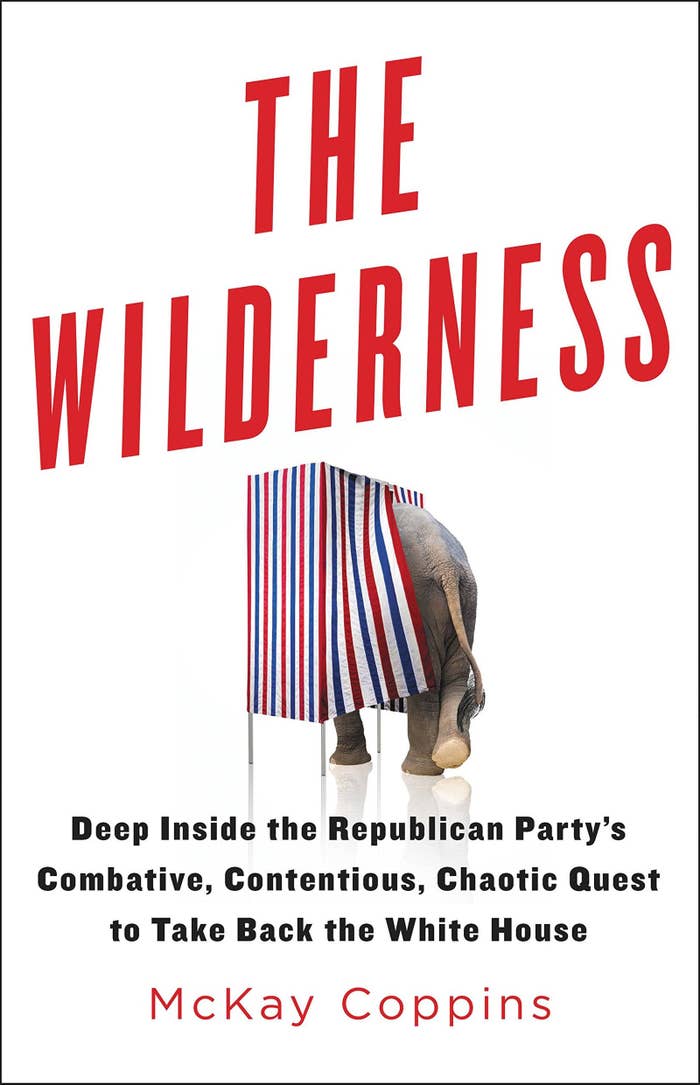
Among the many early obituaries for Rand Paul's presidential campaign that have lately littered the internet, one story has remained largely untold: the intensely personal father-son rivalry that helped derail the younger Paul's presidential ambitions — twice.
Pundits and political writers have spent years speculating about the personal relationship between Ron and Rand Paul as the latter has sought to distance himself politically from some of his father's more unpalatable positions. Publicly, of course, the two men express support for each other (often in the form of fundraising emails). And as Dave Weigel, the Washington Post's Paul chronicler of record, has argued, the media's evidence to the contrary sometimes seems manufactured. “[Ron will] joke that he’s still looking at who to endorse; it will be reported like Saturn devouring his offspring," Weigel wrote in August.
But as I report in my new book, The Wilderness, Rand's rise has indeed created some genuine intrafamily friction — and it started in the run-up to the 2012 GOP primaries.
One day early in 2011, Ron met with Jesse Benton — the young political strategist he shared with his son — to break the news that he wasn’t going to run for president again. ...
Benton was disappointed, but with Ron out of the picture, he decided it was time to start grooming Rand for a presidential run. He approached the younger Paul and pitched him on mounting an insurgent bid for the Republican nomination in 2012. He was adamant that Rand’s polish and pragmatism would make him a far more serious candidate than his dad ever was. Benton argued that, between the fiery base of supporters Ron had built up and the new voters Rand could attract, he would be a real threat to win the White House.
Rand ate it up. He told Benton to start putting out feelers for a 2012 bid, and the strategist moved quickly to schedule a trip to the early primary state of South Carolina. On March 23, 2011, Rand made a surprise appearance at the Charleston Meeting, a gathering of Palmetto State Republican elites, and news of the visit set off sirens in the political punditocracy. Rand fanned the speculation by announcing future trips to Iowa and New Hampshire as well. The buzz was building, the strategy was working, the wheels were in motion — and then, suddenly, it all came to a screeching halt.
A couple of days after Rand’s headline-grabbing South Carolina trip, Ron called up Benton. He had been giving some more thought to the idea of a 2012 presidential bid, and he’d changed his mind.
I’ve decided I’m going to run, Ron said. And I want you to manage my campaign.
Rand, it went without saying, would have to take a seat.
Word of Ron's power play traveled quickly within the Pauls' overlapping orbits of libertarian advisers, allies, and confidantes. Everyone had their own theory as to the patriarch's motives. Some thought Ron was jealous of his son's meteoric rise, or resentful that he wasn't receiving enough credit for Rand's success. One source close to the family speculated to me that Rand had jumped the gun without getting his dad's blessing; another said Ron didn't trust Rand's commitment to libertarian ideals. The most generous theory I heard was that Ron was simply trying to spare his son from rushing into the 2012 fray before he was ready.
After that, the Paulites began to notice more signs of a growing divide between Ron and Rand. One of the most jarring episodes took place inside a green room at a 2012 Republican primary debate, when Sens. Jim DeMint and Lindsey Graham approached Ron and began effusively complimenting his son:

They gushed about how Rand was a joy to work with in the Senate, a real contributor, someone with whom they felt they could work productively despite their ideological differences.
Finally, Ron snapped, “Well, if he’s so great, he should run for president himself.”
DeMint was taken aback by the outburst and quickly shut up. But Graham didn’t seem to catch on, because he just kept spurting commendations for Rand in his courtly Southern drawl, as Ron’s face twisted into a cranky scowl.
After 2012, many in the Pauls' concentric inner circles felt compelled to pick sides — with the more pragmatic political pros signing on with Rand, and the true-believing purists sticking with Ron. The two camps have spent much of the past three years bitterly feuding behind the scenes (and trying to knife each other in interviews for my book). But those closest to the family say Rand genuinely admires his father and is anxious to make him proud by building on his legacy. And Ron?
One senior staffer in Rand's Senate office told me that after years of closely observing the dynamic between the two men, he was left stupefied by Ron's antagonism toward his son's career.
“He should be proud of Rand, but he’s not,” the staffer said. “It’s a really weird relationship.”
Asked for comment on this story, Rand's chief strategist Doug Stafford directed me to a quote he has recently provided in response to reporting in The Wilderness: “I love fiction, so I am looking forward to reading more Washington media machine stories from ‘sources.'"
(The Wilderness is a nonfiction book based on more than 300 interviews. I reside in New York City.)
Excerpted from The Wilderness: Deep Inside the Republican Party’s Combative, Contentious, Chaotic Quest to Take Back the White House. Copyright © 2015 by McKay Coppins. Reprinted with permission of Little, Brown and Company. All rights reserved.
